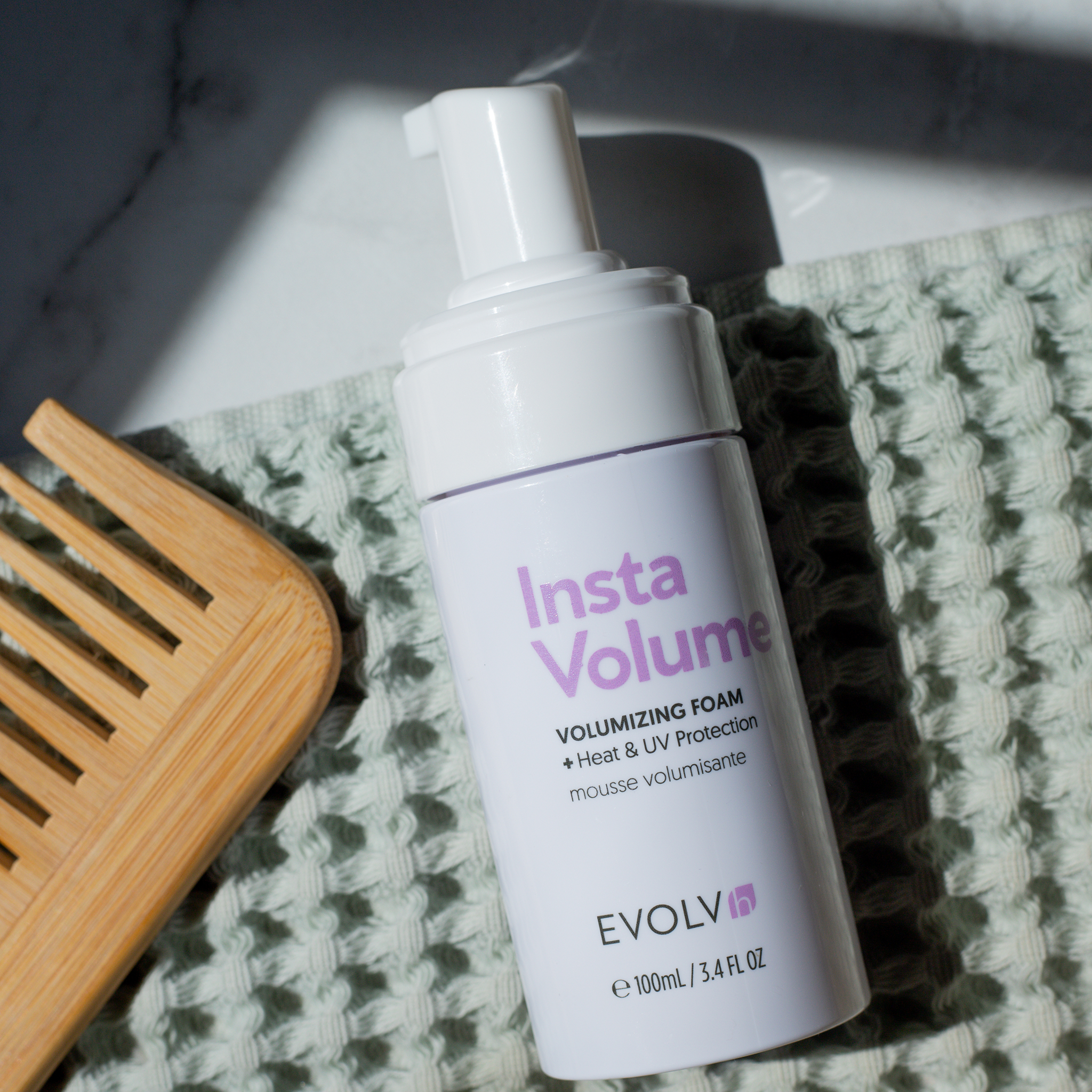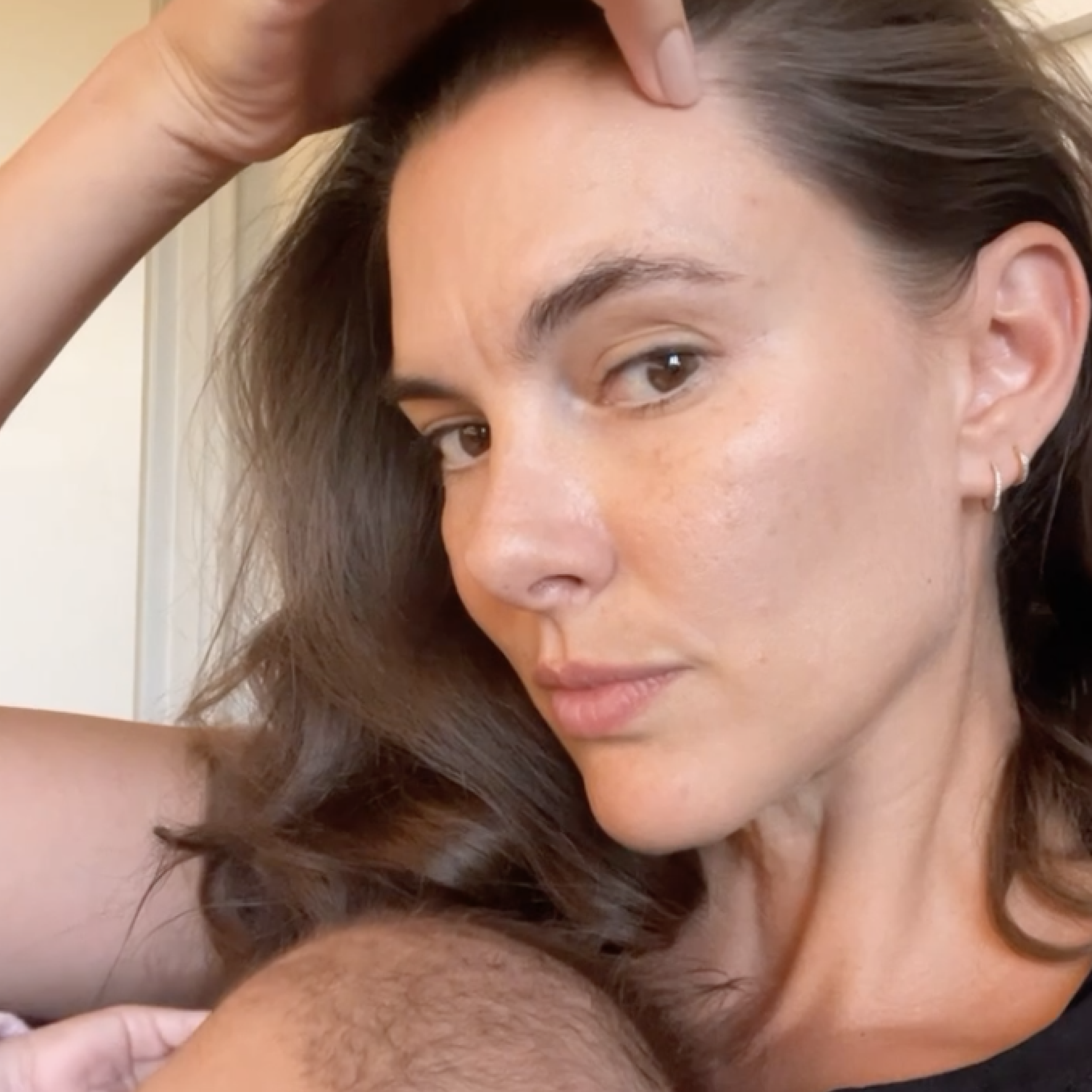Navigating Menopause: Nurturing Your Hair's Health and Vitality

As you embark on this journey, remember: you're not alone. Countless women worldwide share similar experiences and challenges during this time. In this comprehensive guide, we'll explore the intricate relationship between menopause and hair health, offering valuable insights and practical tips to help you navigate this phase with confidence.
Understanding Menopause and Hair Thinning
The primary culprit behind menopausal hair changes is the dramatic shift in hormone levels. As women enter perimenopause and progress through menopause, their bodies produce less estrogen and progesterone.
These hormones play a crucial role in maintaining healthy hair growth cycles. When their levels decrease, it can lead to:
- Slower hair growth
- Thinning of individual hair strands
- Increased shedding
- Changes in hair texture and volume
How Common is Menopausal Hair Loss?
You're not alone if you're noticing changes in your hair. Studies indicate that approximately 50% of women will experience some degree of hair thinning or loss during the menopausal transition. This typically begins in the early 50s but can start earlier for some women. This hair loss can manifest in several ways:
- Diffuse thinning: Overall reduction in hair density across the scalp
- Female pattern hair loss: Thinning primarily at the crown and along the part line
- Telogen effluvium: Temporary increase in hair shedding due to hormonal fluctuations
Beyond Hormones: Other Factors to Consider
While hormonal changes are the primary trigger, other factors can contribute to hair loss during menopause:
- Genetics
- Nutritional deficiencies
- Stress
- Certain medications
- Underlying health conditions
Nurturing Your Hair Through Menopause
- Balanced nutrition: Ensure your diet is rich in biotin, vitamin D, and iron to support hair health.
- Hydration: Drink plenty of water to keep your scalp and hair hydrated from within.
- Gentle hair care: Use sulfate-free products that are kind to your scalp and hair like our Better Roots Growth Support Shampoo and Conditioner, that help promote strong healthy hair growth and strengthen strands.
- Minimize heat styling: Reduce the use of heat tools to prevent weakening hair strands.
- Stress management: Practice relaxation techniques to mitigate stress-induced hair loss.
EVOLVh's Better Roots Collection: A Targeted Solution
For women seeking a comprehensive, science-backed approach to combat menopausal hair thinning, EVOLVh's Better Roots Collection offers a powerful solution:
-
Scalp Health: The Better Roots RootBoost Serum nourishes hair follicles and scalp skin cells, creating an optimal environment for healthy hair growth.
-
Nutrient-Rich Formula: Packed with essential nutrients, the system helps to strengthen hair follicles and reduce hair loss.
-
Easy to Use: Integrating the Better Roots Collection into your hair care routine is effortless and can improve your hair's health. From the bestselling Better Roots RootBoost Serum to the Growth Support Shampoo and Conditioner, plus a styling foam and daily supplement—there's a solution for everyone. Each product seamlessly fits into your lifestyle, providing consistent support for hair growth day after day.
Embracing Change with Confidence
It's important to acknowledge that hair loss can be emotionally challenging. Many women find that talking to a therapist or joining a support group can help them navigate the psychological aspects of this change. Remember, while menopausal hair loss is common, it's not inevitable or untreatable. With the right approach and support like EVOLVh's Better Roots Collection, you can maintain healthy, beautiful hair throughout this transition and beyond.
Source: https://www.ncbi.nlm.nih.gov/pmc/articles/PMC10669803/



